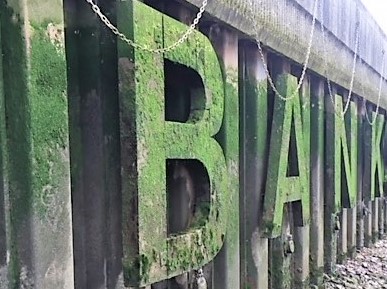AFSA as the bankruptcy regulator has reported[1] on ‘tougher’ prosecution Instructions [2] issued by the Commonwealth Director of Public Prosecutions (CDPP) for a bankrupt failing to file a statement of affairs (SOA). This is by way of prosecution under s 267B of the Bankruptcy Act, which carries a maximum one-year jail sentence. The Instructions are said to achieve ‘better sentencing outcomes when dealing with long term offenders’. They are useful but some questions are raised.
A ‘tiered’ approach will be adopted, with one offence available under s 54 – a bankrupt not filing their statement of affairs (SOA) – and another more serious offence under s 267B, the latter being the offence of not complying with a 77CA notice issued by the Official Receiver and carrying a maximum penalty of one year imprisonment. AFSA says that when a ‘first-time offender’ is referred, the CDPP will commence a prosecution under section 54; where there has been a previous section 54 conviction, the section 267B offence will be used.
The CDPP Instruction is useful but some comments are questionable and in the bankruptcy context it is limited.
The CDPP says that that offences against both section 54 and section 267B of the Act involve the same criminal conduct. This is not quite right. A breach of s 54 involves a bankrupt’s failure to file their statement within 14 days of being notified of the bankruptcy; a breach of s 267B involves a failure to comply with a s 77CA statutory notice issued by AFSA requiring the bankrupt to file the statement of affairs within 14 days of receiving the notice. AFSA has guidance on the process of a trustee seeking AFSA’s assistance under s 77CA.[3]
The Instruction does correctly and usefully point out that it is AFSA’s officers who are the informants in criminal proceedings, or the AFP in respect of matters investigated by them. Registered trustees refer the matters to AFSA, under s 19 of the Act, but they are not the informants.[4] At the same time, evidence may be required from a trustee for the purposes of the prosecution.
There is further useful guidance in the CDPP Instruction involving continuing offences, service of process, warrants, hearings and other issues. Some of this may also be questioned by those acting for bankrupts.
The wider context
In a wider bankruptcy context, the decision to pursue a criminal prosecution should take into account the fact that a ‘civil’ penalty is imposed, with the 3 year bankruptcy period not commencing unless and until the bankrupt’s SOA is filed. That may be seen as meeting public interest concerns of the Commonwealth in many cases.
Then there is the ability of the trustee to require the bankrupt to attend for an examination, under s 77C, or s 81; or of the trustee to lodge an objection to discharge, based upon the bankrupt’s failure to file the SOA. That requires some close consideration of AFSA’s guidance, as to when, if at all, an objection may be lodged.[5]
Beyond this is the judicial oversight available, of ordering the filing of a SOA, subject to a penal order; and ultimately allowing the paying of a dividend by a trustee even though no SOA is filed.[6]
All in all, prosecution might properly be at the end of the list of other quasi-enforcement options.
Creditors’ interests
If a prosecution is contemplated, one consideration should properly be the interests of the creditors. Assuming there are funds in the estate, those funds will have been depleted by the remuneration and expenses of the trustee in investigating and referring the breach of the law to AFSA. If the trustee is then required as a witness at the prosecution hearing, those funds will be further depleted by the trustee’s remuneration for the time spent in so assisting.
Although the public interest might prevail, irrespective of cost, proportionality between effort and outcome should be relevant.
Outcomes
One difficulty in monitoring this process in the limited information given by AFSA and the CDPP as to bankruptcy prosecutions and their outcomes. What information is provided, by way of AFSA ‘media releases’, does show that imprisonment is in fact ordered at times, through for multiple offences. According to AFSA, a bankrupt was recently convicted for a number of bankruptcy offences, including a failure to file his SOA. He was sentenced to 9 months imprisonment, to be released after 3 months on entering into a $1000 good behaviour bond for 2 years and filing his SOA by a nominated date. He was ordered to pay costs of $89.80.
Next
The next commentary will be on whether the CDPP, or ASIC, prosecutes company directors who fail to file a report as to affairs (RATA) of their insolvent companies, if in fact they know the identity of those directors.
[1] (2018) 16(1) Personal Insolvency Regulator.
[2] CDPP Practice Group Instructions – Bankruptcy Prosecutions Instruction Number: 8, 10 November 2017
[3] ORPS10 – Filing of statements of affairs and issue of section 77CA notices by the Official Receiver
[4] IGPS 14 – Referring offences against the Bankruptcy Act 1966 to the Inspector-General
[5] IGPD 11 – Trustees’ guidelines for issuing objections to discharge when statements of affairs not yet filed; OTPS 5 Objections to Discharge.
[6] Barnet v Zhang [2017] FCA 924



